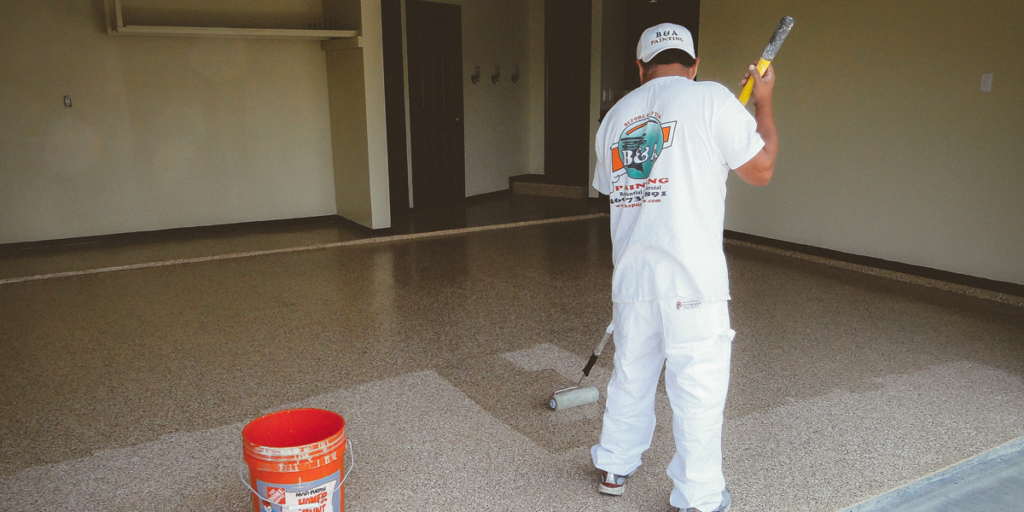
Epoxy Garage Floor Dallas–Fort Worth
Over the last several years, concrete flooring finishes have come out of the warehouse and into contemporary home/office environments. When applied to new or properly prepared existing floors, Epoxy-Urethane is an attractive, highly durable finish that looks great and is simple to maintain. The critical factor in ensuring attractiveness and durability of epoxy resinous coatings is thorough surface preparation. The right preparation requires special equipment such as, shot blasting, acid washing and diamond grinding tools, along with solid training and experience in operating this equipment.
How Epoxy Flooring Works
Step 1: Prep
Diamond grind the floor to open up concrete pores and prepare the floor.
Step 2: Crack Chase
Prepare cracks or proper repair application in the flooring.
Step 3: Patch
Patch any holes with epoxy mortar.
Step 4: Prime Coat
Acid washing to ensure proper adhesion of top coat.
Step 5: Build Coat
Apply a finishing layer of color or clear coating over the epoxy.
Step 6: Top Coat
Urethane top coat to make fade and scratch resistant. Broadcast your new epoxy floor with flack for more decorative appearance.
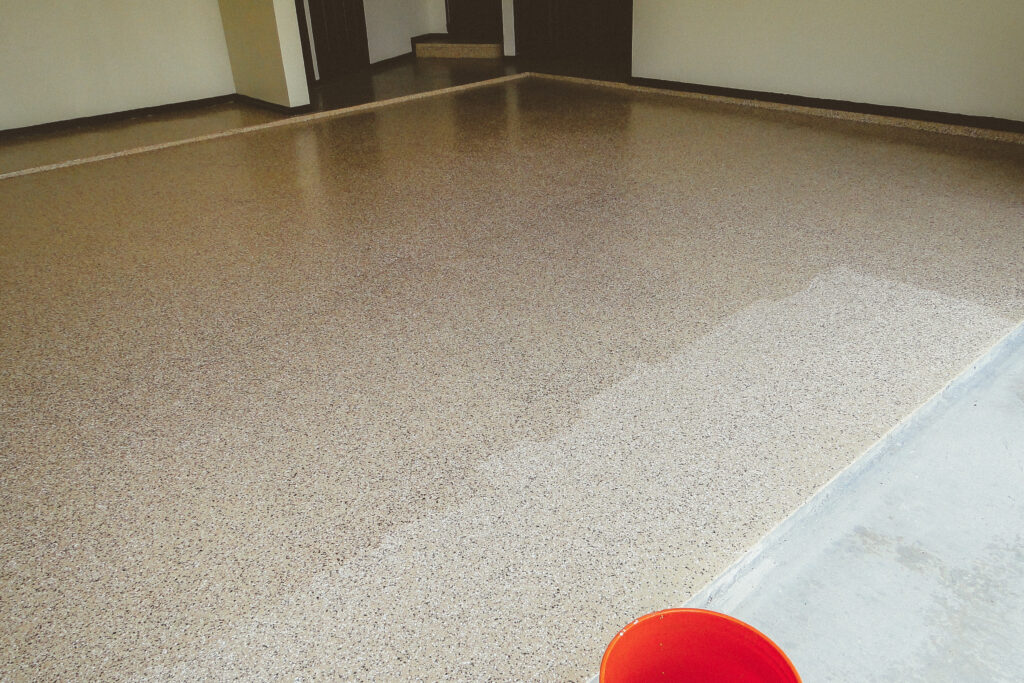
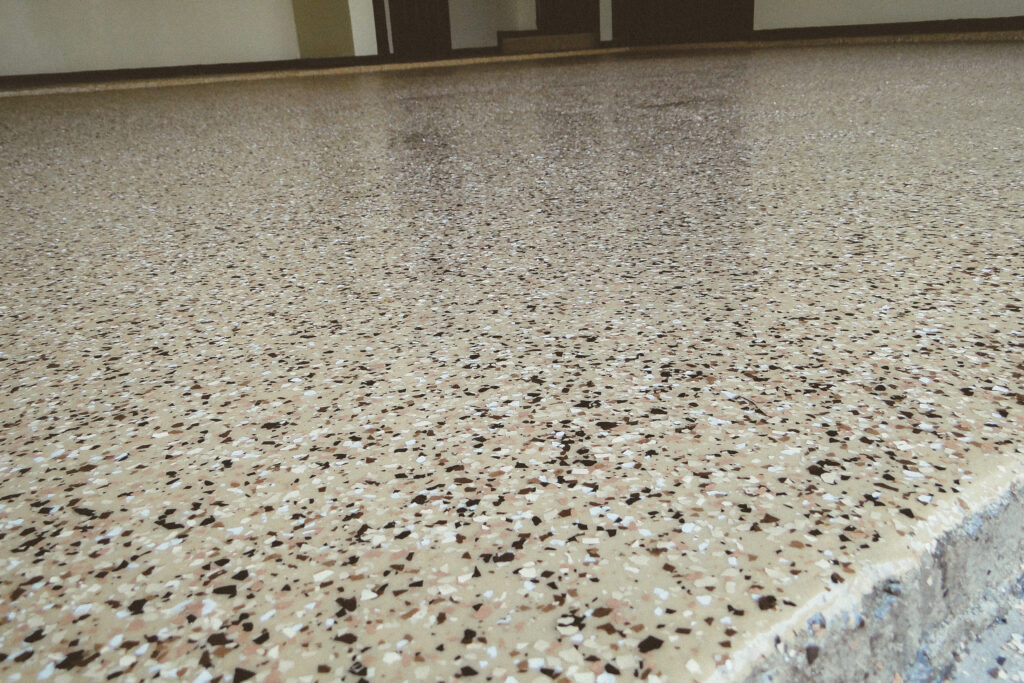
Industrial Epoxy Coating
Do you operate a high-level traffic environment or prime activity level? Then you should consider the Epoxy flooring as it is suited for a work environment that sustains constant pressure and a repeated level of use. Industrial processes generally have major swift negative impacts on the ground bearing upon which they operate. From chemical spills, oil stains or other stains, accidents that may occur in the work-space to maintenance resources needed to achieve necessary committed standards, it is necessary to rely on a floor coating that immediately relieves you of so many troubles and unnecessary spending. Industrial Epoxy Coating is durable, long lasting and aesthetically productive, they are also resistant to wears and cracks that may otherwise occur in average concrete flooring.
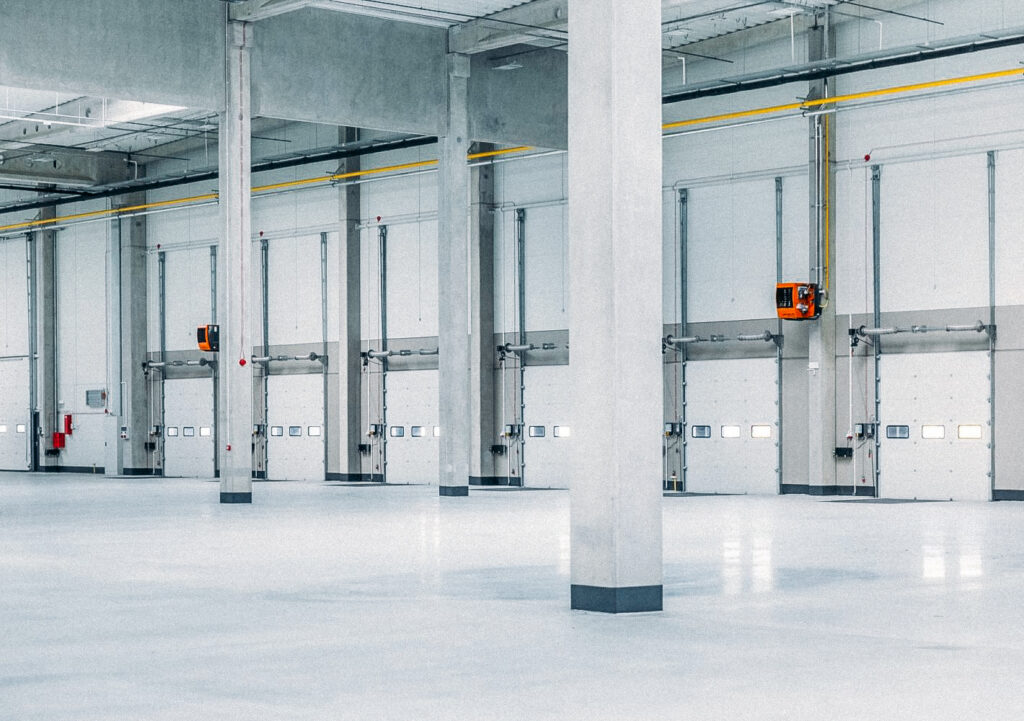
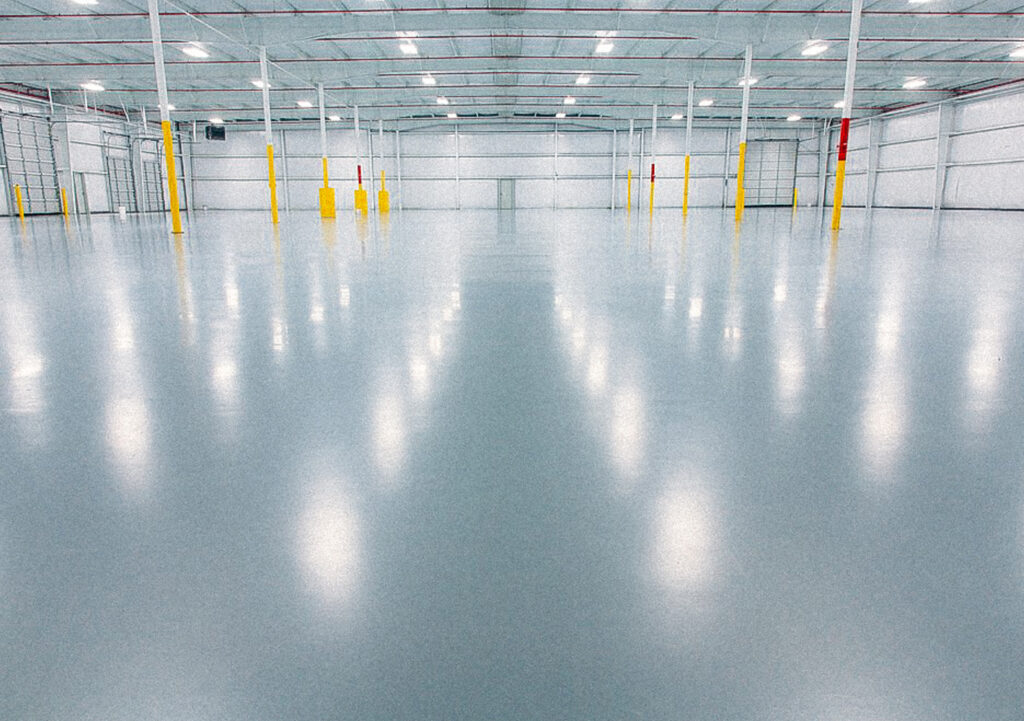
Benefits of Epoxy Floors
There is a range of visual and practical advantages to going with an epoxy floor. For high-traffic locations or surfaces that may be overexposed to weather elements, epoxy flooring provides a durable, safe, adaptable, and easy-to-clean option.
Durable
The resin and hard nature of epoxy adds a protective layer to old or unfinished concrete, making it more resistant to high impact, including stains, climate, weight, trauma, fire, or water. Epoxy floors have a long lifespan and outlast carpet, wood, or tile. Plus, they don’t require frequent repairs.
Cleanable
Epoxy floors contain a sealant that is resistant to moisture, dirt, chemicals, and dust. Because epoxy is very smooth, it’s an easy surface to clean. It can be wiped free of stains or swept without damaging the coating. Plus, antimicrobial coatings can be added to epoxy to make it even easier to sanitize. This feature is extremely important—and a part of regulations—in healthcare, commercial kitchens, and food processing facilities.
Safe
With durable, anti-slip choices, epoxy helps to fortify a safer work environment, with better traction to decrease the chance of falls or injury. The protective finish also is light reflective, improving visibility in garages or warehouses. Additionally, epoxy is essentially non-toxic—once cured, it won’t release fumes in the air or trace amounts of chemicals in water.
Attractive
Epoxy coatings are available in various colors and customizable options. It’s a cost-effective way to transform the look of commercial spaces. For example, decorative flakes and colorful finishes can dress up a restaurant for the ideal ambiance, while simultaneously covering up blemishes and imperfections.
Industries Served
• Automotive
• Retail
• Warehouses
• Laboratories
• Manufacturing
• Office Spaces
• Farming/Fleet
• Medical
• Airplane Hangers
• Food & Beverage
• Distribution
• Veterinary
